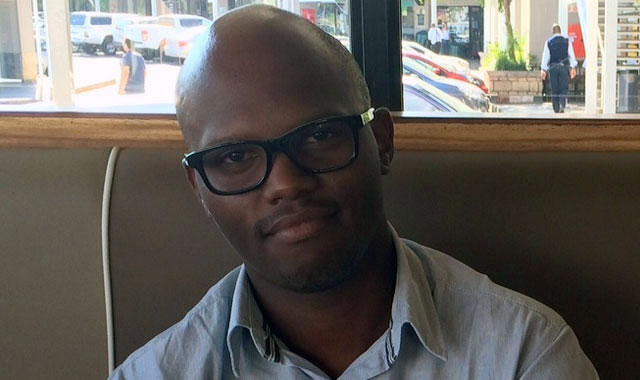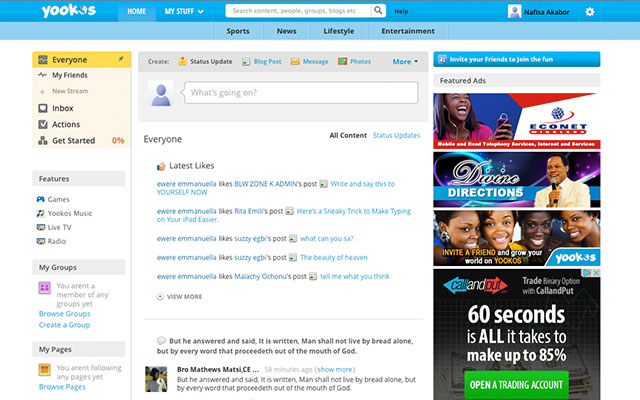
Yookos, a newish social networking site aimed at people across Africa, has signed up 10m users in the three years since its commercial launch and appears set for further strong growth.
The network, which began in Nigeria as a Christian-focused site, is now headquartered in Johannesburg and is targeting a broader audience interested with what its founders call “clean content” that is devoid of things like advertisements for casinos.
It’s almost identical to Facebook in that it lets its users connect with friends, publish status updates, write blog posts and engage with others in extended networks.
It also offers a chat feature and bloggers are allowed to share content that is visible to anyone on the network.
Apart from the website and a mobi site, Yookos is also available as an application on BlackBerry, Android and iOS and caters to the large installed base of feature phones on the continent.
The service is free to access on any platform, with only network data charges applicable for getting online.
Yookos was formed as a way for the Christian community to discuss topics of interest, network and keep in touch. “After using Twitter, we realised we wanted something different, a deeper way to communicate with the community,” says head of marketing Bafana Sibiya.
The site then launched as a commercial entity in January 2011 and, within 3 months, gained more than 6m registered users.
More than 50% of its user base is from Nigeria, with the rest mainly from Zimbabwe, South Africa, the UK and the US. “The UK and US markets are mainly the African diaspora who want to connect with users on the continent,” says Sibiya.
He likens the network to Facebook and Facebook groups because it lets users form their own networks. “We see it as a viable alternative with a more focused African context.”
Each network within Yookos is typically locally relevant, with discussions on topics ranging from health to politics and from lifestyle to sport, says Sibiya. “At the same time, it doesn’t mean you are locked into one group; you are still able to connect with others and find other topics of interest.”
Sibiya adds that many new users are drawn into a specific topic, with churches and communities setting up a presence. “Their contributions have been massive in growing the network over the years; they’ve become ambassadors of the platform.”

Television and radio stations in Nigeria are active on the platform, too. There is an influx of people interested in Nigerian movies and multimedia content, Sibiya says.
The most popular activities on Yookos are the user networks and blogging, says Sibiya. Games are fairly popular in the desktop version.
The plan now is to simplify the experience further, taking 13-year-olds, the youngest age allowed, into consideration.
“One of the things we did when we started was put a lot of content on mobile devices. Our biggest project now is take out what is not relevant.”
Yookos makes money through advertising. The network has private investors from the telecommunications, IT and the financial services sectors who don’t want to be known.
Sibiya says South Africa’s Mxit is its biggest competitor because both networks have created an environment where people can communicate cheaply.
Future plans include introducing premium content, including video. “We want to split premium content into two parts — creating it from scratch through our South African office, and allowing partners to offer content,” says Sibiya. — (c) 2014 NewsCentral Media




